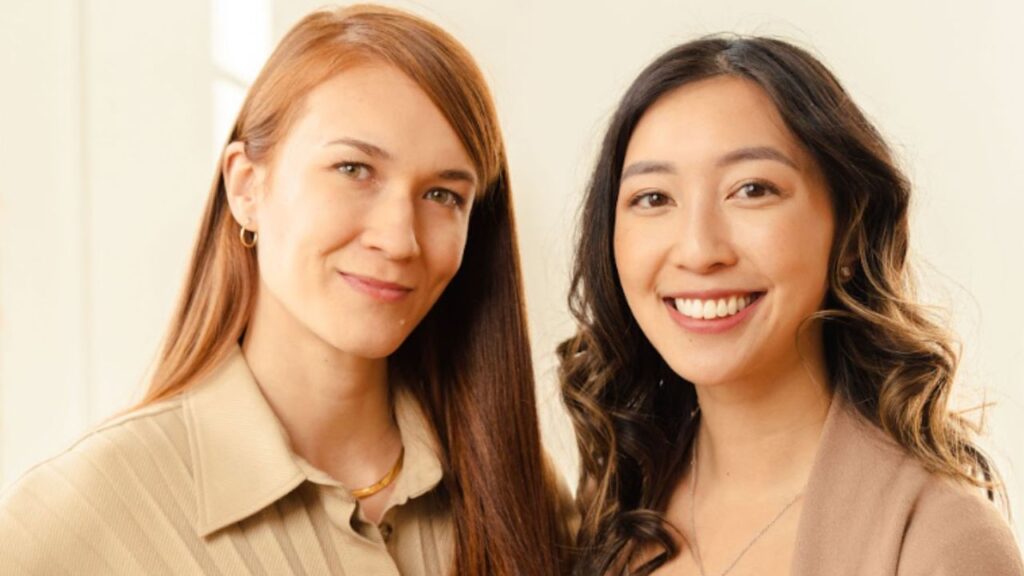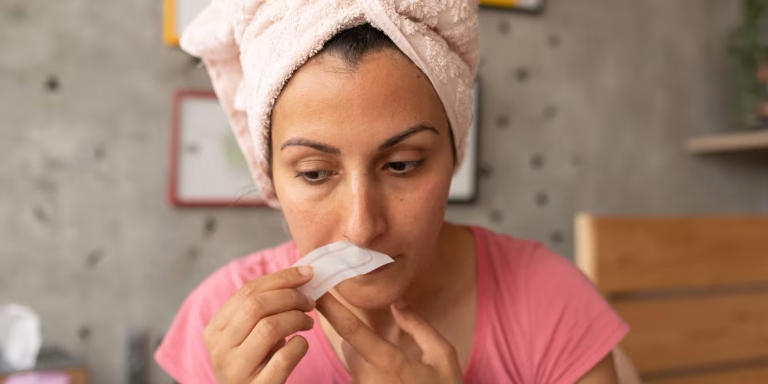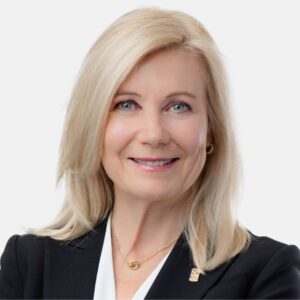How the founders of Three Ships Beauty found the right ingredients to build a successful business
Beauty03.06.2024

It was in Connie Lo’s kitchen in 2017 that she and Laura Burget initially set out to disrupt the skincare industry.
Both frustrated by the natural beauty space’s high price tags and lack of transparency, the recent university grads pooled together some money to start their own beauty brand journey.
“We started from very humble beginnings,” said Burget, who, like Lo, caught the entrepreneurial bug from her dad. “We each invested $2,000 into the brand to get it off the ground.”
And, just like that, Three Ships Beauty was born.
Undergoing a brand change in the early days and experiencing the inevitable scrapes and bruises known to many entrepreneurs along the way, Lo and Burget hit the market with the current iteration of Three Ships Beauty in 2020.
The Canadian-made natural skincare products are focused on setting a new standard within the beauty industry. Devoted to sustainability and transparency, the brand prides itself on creating products that include science-backed plant-derived ingredients, no fillers or chemicals, and completely recyclable packaging.
Customers can also explore a full ingredient glossary on the website, which outlines where every ingredient is sourced from, how it’s sourced, and why it’s used, making education a key pillar of the brand.
“‘Natural’ is very misleading because there’s no legal definition for it,” explained Burget, adding that lack of clarity leads to many brands claiming to be natural when they are not. “Our belief is in creating high-quality, natural, and efficacious products at a fair price. That’s what Three Ships has always been about.”
A multi-million-dollar boost
Now, four years into the business and with fresh funding, the pair are setting out to grow their team and the company further across North America.
Lo and Burget recently secured a $3.5-million financing round led by BDC Capital’s new Thrive Venture Fund. As a profitable business — a milestone the team reached last year — the latest financing will allow them to grow more sustainably, explained Lo.
With products currently in almost 1,000 retail stores across Canada and the U.S., including Whole Foods, Indigo, Hudson’s Bay, Detox Market, and more, the next step is to double down on brand marketing and experiment with new products and market testing.
The company is also growing its 13-person team in hopes that some new strategic hires will help build a successful path for the future.
“Our long-term goal is to eventually expand into functional body care, which is the next natural category going from facial skincare to body,” said Lo. “We’ll see where we go from there!”
Sharing their lessons learned along the way
While Lo and Burget have clearly found the right ingredients to build a successful business — no pun intended — they will be the first to tell you it’s not an easy feat.
“I don’t think we really realized what we were up against when we first started,” said Burget. “That naive optimism that most founders have … we definitely had when we were 23.”
We couldn’t resist asking the female founders for some parting advice for other women in business, and boy, did they deliver.
Here are some of the tips they shared based on their experience as entrepreneurs:
1. Write down your ideas — no matter how big or small, and talk about them
If you want to start a business, writing down your ideas will make them more solid in your mind, said Burget.
“I still have the note on my phone from when I kept coming back to this idea of natural makeup remover,” she added. “That’s always what I advise new founders to do.”
She also says entrepreneurs are often afraid to talk about their ideas with others, but that could leave missed opportunities on the table.
“Share it with people that you trust because you would be surprised by what connections those people in your life can make for you,” Burget said, who was initially connected with Lo through a mutual friend.
2. Be curious, not necessarily passionate
There’s often this idea that you must live and breathe whatever your business is about. However, as the Three Ships founders will tell you, that isn’t necessarily true.
For Burget — who graduated with a degree in chemical engineering — and Lo, with a degree in commerce, the beauty space wasn’t an inherent passion.
“In my view, passion comes through confidence and success and repetition,” said Burget. “Instead, look into the things that you’re curious about, and that will lead to a deep-rooted passion.”
3. Don’t wait for perfection to launch
Lo says she often feels embarrassed when she thinks back to their first product launch, but that’s a good thing.
“There’s a quote by Reid Hoffman that we both love where he says ‘If you’re not embarrassed by the first version of your product, you’ve launched too late.’ I think that is so true,” she said. “Set a deadline to launch and stick to that. Otherwise, you’ll never feel truly ready.”
4. Don’t dive in head first too early
Becoming an entrepreneur always carries some risk, and for Burget and Lo, that meant working separate full-time jobs and building the business in the background before taking the plunge.
“So many startups fail because the founders say, ‘I really believe in this, and because I believe in this, I’m gonna quit my job,’ even though they have zero revenue and zero proof of product market fit,” said Burget.
Her advice? Wait until you have a clear vision of what your full-time job at the startup will look like, and make sure you have the revenue to back that up.
5. Flexibility is key
While it’s great to have a vision for your business, as Lo points out, it often doesn’t turn out how you expect.
Being able to adapt and jump in to take on new challenges — like the entire team hand-packaging every Black Friday order from Lo’s parent’s house — is really important when you’re building up the business, she said.
“You just can’t let those unexpected things faze you; you just gotta keep going,” said Lo. “Have resilience, have thick skin — that flexibility is so important.”










